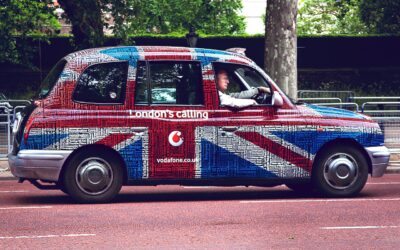As a responsible driver, you may wonder about the long-term consequences of a drink driving conviction on your employment prospects. Will a drink driving offence appear on a Disclosure and Barring Service (DBS) check?
In this blog, we’ll explore the relationship between drink driving convictions and DBS checks to help you understand how it might impact your job opportunities in future.
Why are DBS Checks Important?
DBS checks are a critical part of the hiring process for certain professions and industries in the UK. They aim to ensure the safety of vulnerable individuals by assessing your criminal history. DBS checks come in different levels: Basic, Standard, and Enhanced, depending on the role’s nature and level of contact with vulnerable populations.
Drink Driving Offences and Convictions
Drink driving refers to operating a vehicle while under the influence of alcohol. The legal limit is 80 milligrams of alcohol per 100 millilitres of blood, so anything over this would be classified as drink driving.
Convictions for drink driving can vary based on the level of alcohol detected in the driver’s system as well as other aggravating or mitigating factors.
Aggravating factors often result in a harsher sentence and include examples such as:
- Having a prior related offence
- Having passengers in the vehicle
- Being involved in an accident
On the other hand, mitigating factors can result in a less severe sentence. Some examples of mitigating factors include:
- No previous or related offences
- Driving due to a genuine emergency
- Short driving distance
- Being the sole caregiver to dependents
Pleading guilty will also reduce the severity of the conviction. However, it will not influence the disqualification period (the amount of time you are banned from driving).
DBS Checks & Criminal Record Checks
Does Drink Driving Show On a DBS Check?
Whether a drink driving conviction shows on a DBS check depends on various factors, including the type of DBS check and the status of the conviction.
The Rehabilitation of Offenders Act 1974 plays a crucial role here. For instance, after a specified period known as the “rehabilitation period,” some convictions become “spent” and need not be disclosed in most situations.
The rehabilitation period for drink driving convictions depends on the sentence imposed by the court.
- Custodial sentences of up to 6 months: Rehabilitation period is 2 years.
- Custodial sentences between 6 months and 2.5 years: Rehabilitation period is 4 years.
- Custodial sentences of over 2.5 years: Rehabilitation period is 7 years.
Non-custodial sentences have rehabilitation periods ranging from 1 to 5 years, depending on the penalty.
Jobs That May Require DBS Checks Related to Drink Driving
Professions involving driving responsibilities or direct interaction with vulnerable individuals may require a DBS check that includes drink driving convictions. For instance, jobs in the transportation sector, healthcare, education, and social work often prioritise safety and may consider an individual’s driving history as part of their screening process.
Jobs That Typically Do Not Require DBS Checks for Drink Driving
On the other hand, numerous jobs do not involve driving responsibilities or direct contact with vulnerable individuals. These roles may not necessitate DBS checks that include drink driving convictions. Positions in retail, hospitality, office administration, and some creative or IT-related fields are examples of such jobs.
Impact of Drink Driving Convictions on Employment Prospects
While a drink driving conviction may not automatically disqualify you from every job, it can impact your employment prospects, particularly in roles that require driving or involve working with vulnerable individuals. Employers may consider the nature and severity of the offence, the time elapsed since the conviction, and the candidate’s overall suitability for the position.
Final Thoughts on Drink Driving & DBS Checks
While a drink driving conviction may show on certain levels of DBS checks, it does not necessarily mean the end of your career prospects. Understanding the rehabilitation periods and knowing the requirements for specific job roles can help you make informed decisions.
Remember that individual employers may have different policies and attitudes toward drink driving convictions, so it’s essential to research and tailor your approach accordingly. Seek professional advice if needed, and focus on rebuilding your life and career with a positive outlook.




